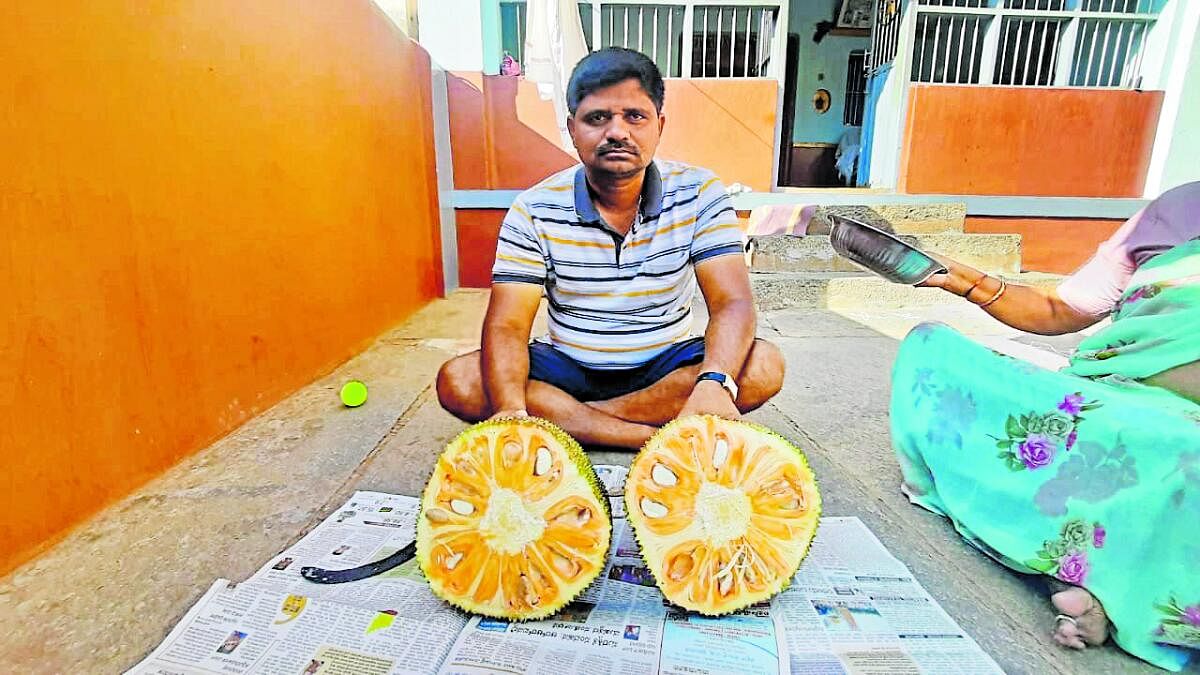
Siddu jackfruit has become the first fruit from Karnataka to be recognised by the Union government for its distinct properties, with its farmer getting exclusive rights over the fruit, a move that will boost conservation of local varieties.
S S Paramesh, the farmer from Seegenahalli in Chelur taluk of Tumakuru, is the man behind the fruit.
The mother tree in Paramesh's farmland was planted about 35 years ago by his father S K Siddappa. The fruit with coppery red flake (flesh) acquired celebrity status, thanks to the efforts of the Indian Institute of Horticulture Research, Bengaluru.
The Plant Varieties Registry, Protection of Plant Varieties and Farmers' Rights Authority, has recognised Paramesh as the true breeder "entitled to a plant variety right'' over Siddu jackfruit. "The applicant..shall have the exclusive right to produce, sell, market, distribute, import or export the variety for an initial term of nine years," the certificate says and adds that the rights are renewable further.
Today, seedlings of Siddu jack have been bought by farmers across the country. This also led to many persons selling seedlings by misusing the 'Siddu' brand name.
"There are many outlets selling seedlings by misusing the name. I have seen four outlets in Bengaluru, three in Shivamogga, two in Dakshina Kannada that I am aware of. I can now send legal notice to the owners," the farmer said.
G Karunakaran, the principal scientist from IIHR-Bengaluru, said the certificate and exclusive rights are a positive development.
"There are hundreds of varieties of rich horticulture and agriculture crops which have been lost. This biodiversity can be conserved when farmers are incentivised. The certificate not only helps in the social security of farmers, but also goes a long way in encouraging them to conserve what they have," he said.
Experts believe lack of awareness among farmers has led to companies -- both Indian and foreign -- claiming rights over crops that survived out of natural selection. "IIHR's work on Siddu jackfruit has already made many farmers think of their traditional varieties as wealth," he said.